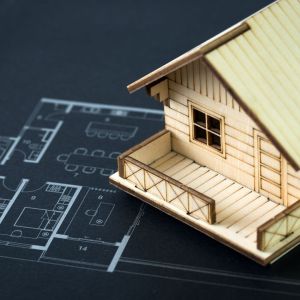Parts of the House in German
The house is one of the spaces we encounter and use the most in our daily lives. Knowing the parts of the house is very important when learning German, both in terms of improving vocabulary and correctly describing the areas around us.
Parts of the House in German
Parts of the house in German are frequently encountered in both daily conversations and written expressions. For example, you need these words when describing a room, explaining which items are in which room, or describing the direction of the house for a visitor.
In this article, we will discuss the words related to the basic parts of the house in German with sample sentences and their correct usage. We will make it easier for you to learn with tips that will support both your visual and auditory memory. If you are ready, let's step into the world of parts of the house in German together!
What Are Rooms in German?
Rooms in German are the basic words used to describe different areas in the house. These words are frequently encountered in daily conversations and written expressions. Here are some basic words for the parts of the house in German:
Das Wohnzimmer (Living Room)
This is one of the parts of the house where most of the time is spent. People relax, watch TV or receive guests here.
Die Küche (Kitchen)
This is the area where meals are prepared. Activities such as cooking and preparing meals are done in the kitchen.
Das Schlafzimmer (Bedroom)
This is the room used for sleeping and resting. The bedroom contains the necessary items to ensure a good sleep routine.
Das Badezimmer (Bathroom)
The bathroom is the room where personal care is done. Taking a shower or taking a bath is done here.
Das Esszimmer (Dining Room)
This is the area where families eat. In some houses, it may be combined with the living room.
Der Flur (Hallway)
This describes the area that connects different parts of the house. It is usually located between the rooms.
Das Arbeitszimmer (Study Room)
This is a room reserved for work. It can be used as a home office.
Der Keller (Basement)
The area on the lower floor of a house, usually used for storage.
Attic
The upper floor of a house, close to the roof, usually used as a storage or living area.
Balcony
A small area in a house that opens to the outside. It is usually used for sitting, relaxing or growing plants.
Parts of a House in German - Example Sentences
Das Wohnzimmer ist sehr gemütlich.
(The living room is very comfortable.)
In der Küche koche ich jeden Abend.
(I cook in the kitchen every evening.)
My Schlafzimmer ist neben dem Badezimmer.
(My bedroom is next to the bathroom.)
Im Esszimmer stands a large Tisch.
(There is a large table in the dining room.)
Der Balkon hat eine schöne Aussicht.
(The balcony has a nice view.)
German Rooms
das Wohnzimmer – Living room
das Schlafzimmer – Bedroom
die Küche – Kitchen
das Badezimmer / das Bad – Bathroom
das Esszimmer – Dining room
das Kinderzimmer – Children’s room
das Workzimmer – Study room
der Flur – Hallway / Hallway
das Gästezimmer – Guest room
der Keller – Basement
der Dachboden – Attic / Attic
der Abstellraum – Pantry / Storage room
der Hauswirtschaftsraum – Laundry room / Housekeeping room
der Balkon – Balcony
die Terrasse – Terrace
The subject of parts of the house in German is an important part of developing basic language skills in the German language learning process. By learning the parts of the house in German, you can describe your living space, give directions and express yourself more fluently in everyday conversations. From the living room to the kitchen, from the bedroom to the bathroom, many areas related to words are indispensable for practical conversations.
Our aim at sculin.com is to teach the parts of the house in German and to enable you to use German more effectively in daily life. Learning this topic will both expand your vocabulary and help you speak confidently about common situations such as the home environment.


 Sculin Kids
Sculin Kids 